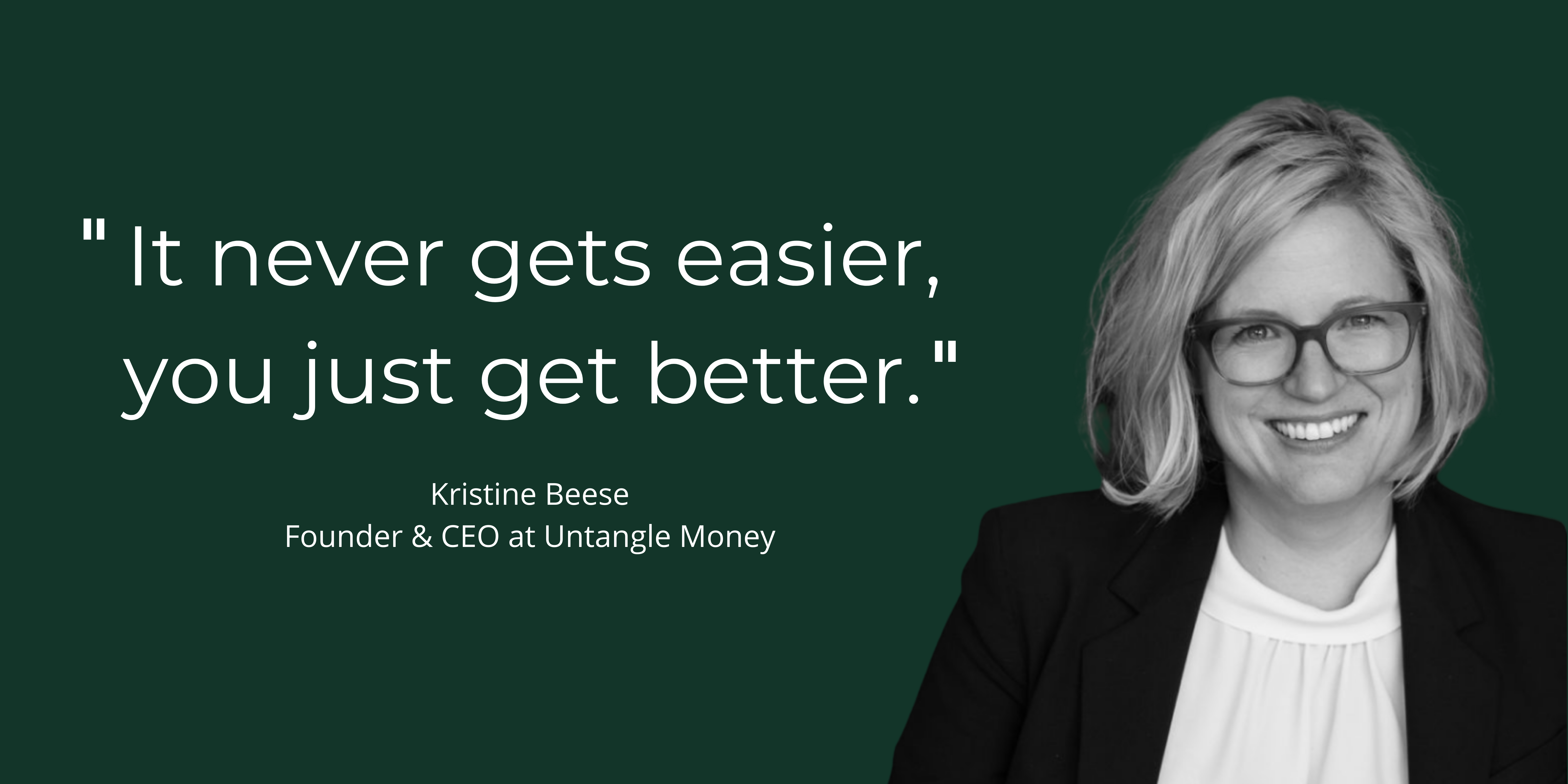Tell us about your startup and what inspired you to start it.
Untangle Money helps you understand your money, both now and in the future and using that understanding, we help you build a financial plan that works with what matters to you most. We show you how making small changes today can have large implications on your financial future. Untangle Money is a solution that can be used by everyone but is built with the specific needs and realities of women’s financial lives at its core.
Ria (another co-founder) and I met at a hackathon, and we bonded as women from the financial services industry. We saw how poorly the industry was serving women; we saw how women’ long-term financial outcomes were being affected by systemic barriers to accessing the services and advice they needed to build healthy financial futures. We felt there was a better way to help women, so we built a better way.
What drew you to entrepreneurship?
I want to build something, and make an impact for women in the world. Finances seem like a key pillar of gender equality and an area where I can help. Also, both my grandfathers were entrepreneurs and in a way that planted a seed; starting a company always seemed like something that I would do.
What energizes you to pursue your startup even when things aren’t going as planned?
Staying focused on the broader vision of finding a better way to help people help themselves, especially as it relates to finance. Personal finance can have such a big impact on someone’s life and the goal of leveraging technology to help people ‘at scale’ is a great motivating force.
When things aren’t going to plan, it feels demoralizing. But all it takes is speaking with one of our clients and being there when they have an ‘aha’ moment when we know that we’ve made a difference for them in a meaningful way. Getting to share that moment is really rewarding and rejuvenating.
What is your motto in life?
This comes from my days as an athlete, you can only control your attitude and your effort. Your attitude is positive and aggressive, and your effort is 100%. My coach also liked to say: It never gets easier, you just get better. And lastly: you can’t change what you don’t know.
What book(s) or movie(s) do you highly recommend? Why?
As an avid book reader, it is hard to pick just one! But in the theme of women and money, here are some favourites:
Invisible Women: Data Bias in a World Designed for Men – I can draw a straight line from reading this book to starting Untangle Money. This book unearths just how ubiquitous the trend is across sectors and industries that we capture data from men (and neglect to include women), and then apply it to everyone. The outcome of these data gaps are numerous, with often serious consequences for women’s health and wellbeing. Reading this highlighted for me that beyond the emotional differences for women accessing financial services, there are many barriers that are structural, and yet the finance industry treats women’s and men’s financial lives the same way.
Shannon Lee Simmons’ Worry-Free Money and Living Debt-Free, Annabelle Williams’ Why Women Are Poorer Than Men and What We Can Do About It, and Mariko Lin Chang’s Shortchanged are three other books that I recommend.
What advice would you give to someone who is thinking about starting their own startup? Why?
Figure out a few low-risk tests to see if the lifestyle is for you. Go to a weekend hackathon. Talk to other people in the space you’re looking at and see if you have a differentiated point of view. Do some initial research to test your idea. Not only will you be training yourself to figure something out cheaply, but you’ll also figure out if you like the initial stages of entrepreneurship.
What change would you like to see in your industry?
There is so much work to do on gender parity in the financial service industry. Sallie Krawcheck states: “86% of financial advisers are men, 90% of traders are men, 98% of mutual fund managers are men, 99% of invested dollars are managed at companies run by men”. These stats make it easy to see how women’s lives are seen as an afterthought.
What is one thing you’ve learned so far or taken away since joining IFH Lab?
Chatting with all of the mentors has been great! They are extremely valuable because they all revolve in and around the fintech space. Each one has been able to offer valuable and often directly applicable advice. Through all of the discussions, we’ve realized there isn’t really a ‘one-size fits all’ answer to how companies or products develop. It’s about understanding the vision, what the priorities are, and how to get there – no matter your level of experience, you still have to figure it all out.




